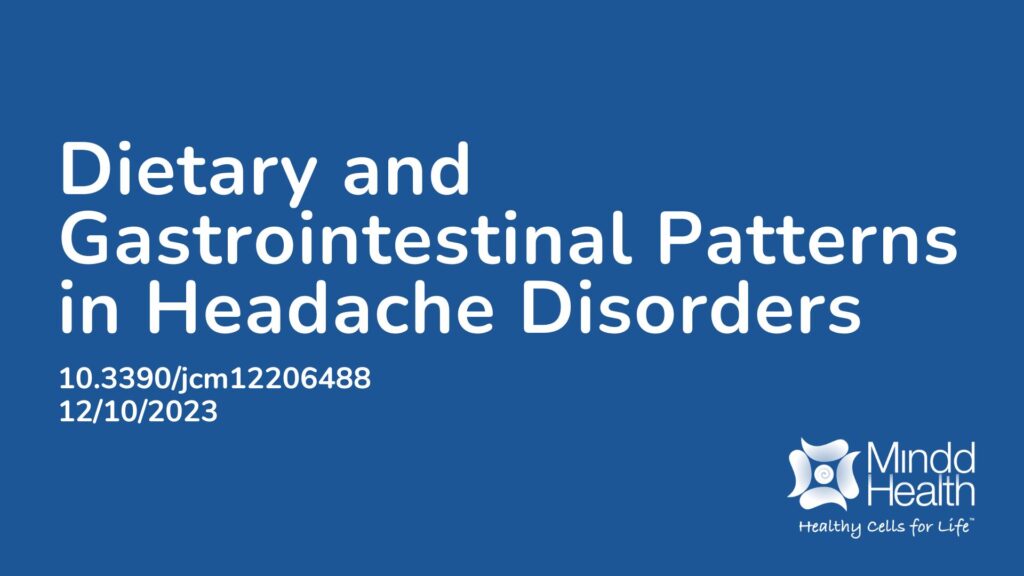Summary:
Medication overuse headache (MOH) is a disabling chronic condition that often develops in individuals with primary headaches, especially migraine, due to frequent use of pain-relieving medications. Affecting around 2% of the population, MOH significantly reduces quality of life. Migraine is commonly linked to conditions such as depression, anxiety, fibromyalgia, sleep disorders, irritable bowel syndrome (IBS), and cognitive complaints. While migraine and IBS are both associated with food triggers, their relationship has not been studied in the context of MOH. About one-third of migraine patients report specific food triggers, including chocolate, cheese, dairy, and alcohol. IBS, like migraine, is more prevalent in women and shares features such as chronic pain, overlapping comorbidities, and similar triggers. However, the role of food in MOH symptoms remains unclear. This cross-sectional online survey of 1,118 participants collected data on demographics, medication use, headache characteristics, IBS symptoms, cognitive complaints, and the consumption of 125 foods and additives. Migraine was diagnosed in 88% of respondents and MOH in 30.7%, with NSAIDs being the most commonly overused medication. IBS symptoms were present in 35.8% of participants without headaches, 52% with migraine, and 65% with MOH, showing a higher prevalence in the MOH group. MOH-specific food triggers included commonly consumed “healthy” foods such as bananas, apples, cherries, apricots, watermelon, olives, ice cream, and yogurt, which differed from the processed, histamine-rich foods more often linked to migraine. Cognitive complaints were more severe in those with MOH or episodic migraine when IBS symptoms coexisted. These findings suggest that MOH patients experience higher rates of IBS and may have distinct dietary triggers compared to migraine sufferers. IBS may also contribute to cognitive difficulties in those with chronic headache. The results support the need for personalised dietary approaches and attention to gut health in managing both migraine and MOH
Abstract:
Background: Irritable bowel syndrome (IBS) is an under-diagnosed common health problem that impairs quality of life. Migraine and IBS are comorbid disorders that are triggered by foods. We aim to investigate IBS frequency in medication overuse headache (MOH) patients and identify food triggers and food avoidance behavior. Methods: Participants who completed the cross-sectional, observational and online survey were included (n = 1118). Demographic data, comorbid disorders, medications used, presence of headache, the diagnostic features of headache and IBS, migraine related subjective cognitive symptoms scale (MigSCog), consumption behavior of patients regarding 125 food/food additives and food triggers were asked about in the questionnaire. Results: Migraine and MOH diagnoses were made in 88% and 30.7% of the participants, respectively. Non-steroidal anti-inflammatory drugs (NSAIDs) were the main overused drug (89%) in MOH patients. IBS symptoms were present in 35.8% of non-headache sufferers, 52% of migraine patients and 65% of MOH patients. Specific food triggers for MOH patients were dopaminergic and frequently consumed as healthy foods such as banana, apple, cherry, apricot, watermelon, olive, ice cream and yogurt. MigSCog scores were significantly higher in episodic migraine and MOH patients when IBS symptoms coexisted. Conclusions: The frequency of IBS was higher in MOH patients compared to migraine patients. Coexistence of IBS seems to be a confounding factor for cognitive functions. MOH specific triggers were mostly dopaminergic foods, whereas migraine specific food triggers were mostly histaminergic and processed foods. Personalized diets focusing on food triggers and interference with leaky gut must be integrated to MOH and migraine treatment to achieve sustainable management of these disorders.
Article Publication Date: 12/10/2023
DOI: 10.3390/jcm12206488



